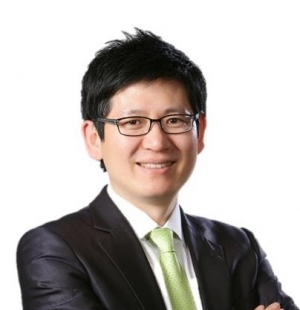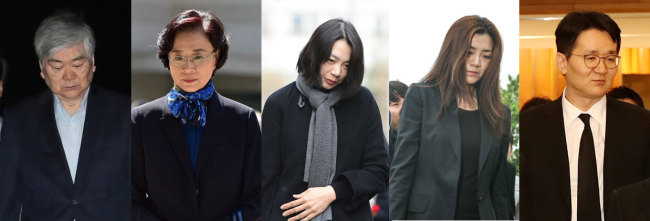The Boardroom
Hanjin VS. KCGI: Second Round
[THE INVESTOR] Fresh tension is brewing at Hanjin Group, which controls Korea’s largest airline, after a local activist fund made a surprise announcement last week that it has acquired a 9 percent stake in its holding firm Hanjin KAL, becoming its second-largest shareholder.
The Seoul-based private equity firm KCGI said on Nov. 15 it has purchased 5,322,666 Hanjin KAL shares for 24,557 won (US$21.47) apiece through its subsidiary Grace Holdings. The firm’s present stake compares to the largest shareholder Hanjin Chairman Cho Yang-ho’s 17.8 percent and other favorable shares of the owner family worth about 10 percent.
Adding to the stake ownership, the firm pledged it would raise its voice for better corporate governance, stating Hanjin companies are still highly undervalued due to the idle management.
“As a major shareholder, we will fulfill our role of enforcing checks and balances rather than posing a threat to the management,” the firm said in a statement on Nov. 19. “Unlike some speculative foreign funds that demand unreasonable dividend policies or cost cuts to boost the share price, we are not seeking any short-term profits. We aim to enhance the interests of our employees, shareholders and customers through long-term business development.”
Local analysts also reacted positively, raising their target price for Hanjin KAL stocks. Following the announcement, Daishin Securities raised the price from 27,000 won to 29,000, while KTB Investment & Securities upgraded it from 28,000 won to 30,000 won.
Who is KCGI founder Kang Sung-boo?
KCGI founder Kang sung-boo, former CEO of LK Partners who led the firm’s investment in Hyundai Cement and Yojin Engineering & Construction, is considered a pioneer of Korean shareholder activism.
 |
KCGI, or Korea Corporate Governance Improvement, was set up in July this year. Grace Holdings, the firm that purchased Hanjin KAL shares, is a special purpose company whose largest shareholder is KCGI’s first PEF.
In September, the Financial Services Commission decided to ease regulations that require local PEFs to own more than 10 percent stake in a company if it seeks to participate in management, in a move to create a more favorable environment for shareholder activism.
“KCGI’s stake purchase of Hanjin KAL is a prelude to shareholder activism in Korea,” said Song Chi-ho, an analyst at eBEST Investment & Securities.
Why Hanjin KAL?
Hanjin KAL is the group’s holding unit that controls its key affiliates, including the nation’s largest flag carrier Korean Air, low-cost carrier Jin Air, hospitality unit KAL Hotel Network and logistics firm Hanjin Shipping. It owns 29.96 percent of Korean Air, 60 percent of Jin Air and 100 percent stake in KAL Hotel Network.
The firms operate lucrative businesses on the back of the recent tourism boom in Korea, but KCGI says their valuation is still low due to lax management, not to mention the scandal-prone owner family’s reputation ranging from the “nut rage” heiress Cho Hyun-ah to the chairman’s latest embezzlement trial.
 |
The Cho Family: (From left) Hanjin KAL Chairman Cho Yang-ho, Cho's wife Lee Myung-hee, Cho Hyun-ah, Cho Hyun-min and Cho Won-tae |
“Hanjin companies are highly undervalued due to idle assets and delayed investments. We could increase their valuation through improved corporate governance,” the firm said.
Analysts say expectations are high for the activist fund considering almost nothing has changed in Hanjin’s corporate governance despite years of reform calls both from employees and the public.
“The owner family’s stake of around 29 percent including favorable shares would be not enough to effectively respond to a possible proxy battle with the activist fund,” said analyst Song.
The group’s pending leadership succession scheme is also believed to have affected the fund’s stake purchase. Unlisted firms like Hanjin KAL Network, Hanjin Tour and Waikiki Resort Hotel, as well as other valuable assets could be reevaluated during the process.
The Hanjin patriarch’s three children hold a combined 6.92 percent stake in the holding unit.
What is the first target?
Industry watchers say KCGI may be seeking to replace board members at a shareholder meeting planned in March. Among the seven board members are Chairman Cho and his son Korean Air CEO Won-tae, while terms of three members, including Cho’s close ally and Korean Air Vice Chairman Seok Tae-woo, will expire on March 17.
 |
“Many minority shareholders who have complained about the owner family’s abuse of power are likely to join KCGI,” said Yang Ji-hwan, an analyst at Daishin Securities. “If KCGI succeeds in getting representation on the board, it would seek to sell the firm’s assets like hotels to recover profitability.”
It remains to be seen whether other institutional investors, including the third-largest shareholder National Pension Service, will join hands with KCGI. The nation’s pension fund owns 8.35 percent in Hanjin KAL, while Credit Suisse and Korea Investment Management hold 5.03 percent and 3.81 percent, respectively.
The Hanjin chairman is also likely to come up with more shareholder-friendly policies, including increased dividend payouts, in a move to soothe angry investors and secure more favorable votes ahead of the proxy battle in March.
By Park Ga-young (gypark@heraldcorp.com)








